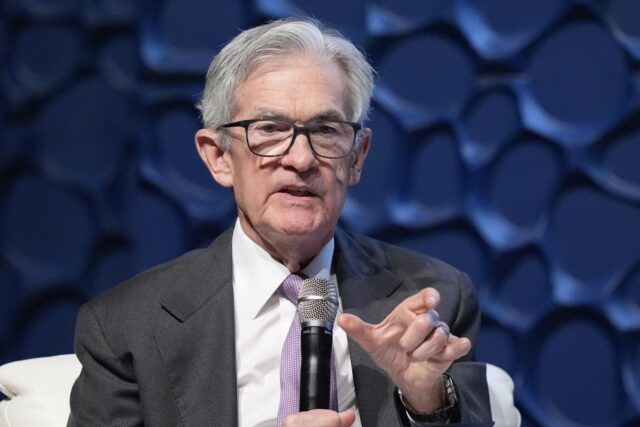Chair Jerome Powell said the Federal Reserve’s ability to set interest rates free of political interference is necessary for it to make decisions to serve “all Americans” rather than a political party or a specific outcome
Powell: Fed’s independence from politics is vital to its interest rate decisionsBy CHRISTOPHER RUGABERAP Economics WriterThe Associated PressWASHINGTON
WASHINGTON (AP) — Chair Jerome Powell said Wednesday that the Federal Reserve’s ability to set interest rates free of political interference is necessary for it to make decisions to serve “all Americans” rather than a political party or a specific outcome.
Speaking at at New York Times’ DealBook summit, Powell spoke in response to a question about President-elect Donald Trump’s numerous public criticisms of the Fed and of Powell himself.
“We’re supposed to achieve maximum employment and price stability for the benefit of all Americans and keep out of politics completely,” Powell said.
The Fed chair said he was confident of widespread support in Congress for maintaining the central bank’s independence.
“I’m not concerned,” he said, “that there’s some risk that that we would lose our statutory independence.”
On the topic of interest rates, Powell said the Fed can afford to cut its benchmark rate cautiously, because the economy remains sturdy and inflation has tumbled from its peak of two years ago.
The Fed has been aiming to deliver a “soft landing” for the economy, whereby the central bank’s interest rate hikes manage to help reduce inflation to its 2% target without causing a recession. History has shown it’s a rare and difficult feat.
Yet the economy appears largely on track for such an outcome. The job market has slowed. And inflation is down sharply, though in recent months it has remained stuck modestly above the Fed’s target, which could make the policymakers reluctant to cut rates much further.
Several other Fed officials have said this week that they expect to cut rates further, without committing to a reduction at their next meeting later this month.
On Monday, Christopher Waller, an influential member of the Fed’s Board of Directors, said he was “leaning” toward a rate cut when the central bank meets in two weeks. Waller added, though, that if forthcoming data on inflation or hiring appears worse than the Fed expects, he might favor keeping rates unchanged.
On Tuesday, Mary Daly, president of the Federal Reserve Bank of San Francisco, said she supported further lowering rates, without commenting specifically on a timetable.
“Whether it’ll be in December or some time later, that’s a question we’ll have a chance to debate and discuss at our next meeting,” Daly said in an interview on Fox Business News. “But the point is, we have to keep policy moving down to accommodate the economy because we want a durable expansion with low inflation.”

COMMENTS
Please let us know if you're having issues with commenting.